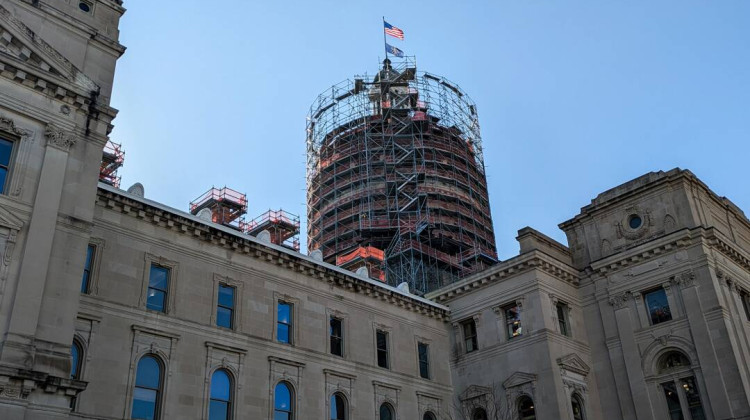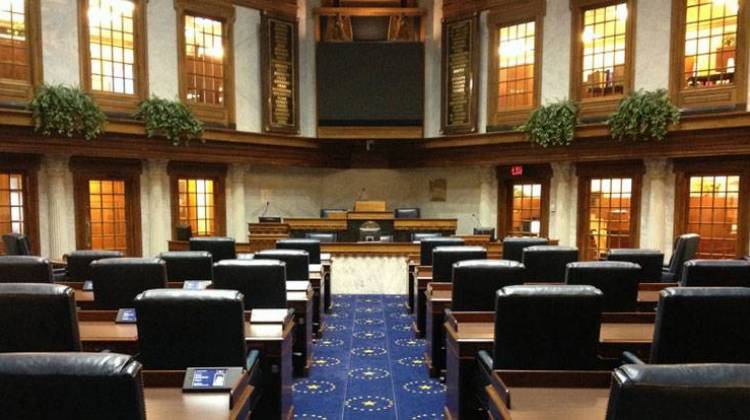
A Ball State University program that already inspects and certifies voting machines in Indiana will help with new audits.
(Stephanie Wiechmann/IPR News)Indiana will double post-election audits, after this year’s general election.
As the state pays for all electronic voting machines in Indiana to install “voter verifiable paper audit trails” by 2024, GOP Secretary of State Holli Sullivan said post-election audits will be able to check accuracy from the electronic poll book to the voting machine to the paper trails.
“And it also allows us to analyze each process, down to the precinct, on evaluating if our elections process is producing what we thought when we created it," Sullivan said. "Just like I used to do when I was the quality manager at Toyota, when we’d take a Tundra off the end of the line and we’d test it around the test track.”
After 2020’s election, audits were done in Cass, LaPorte, Madison, Marion and Vigo counties. After the upcoming contest in November, 10 yet-to-be-named counties will be audited. And four counties will receive audits after each primary election.
Sullivan, who has said Indiana’s 2020 election had no fraud, says the state may not need to continue doubling audits after every election cycle, but could look to increase the overall number.
The Ball State University Voting System Technical Oversight Program will help with those audits. The program already inspects and certifies voting machines and electronic poll books across Indiana.
In response to the audit increase, the Indiana Democratic Party called it an “election year stunt” that creates more questions for Hoosiers. In a statement, party spokesman Drew Anderson said, “This sad attempt to save her election chances to appeal to an extreme base again shows an Indiana GOP without a plan for the state’s future — just shallow partisan maneuvers.”
The Secretary of State’s Office did not say how much the additional audits will cost. But, Sullivan did say more audits make the state more efficient at audits, making each one quicker and more cost-effective for taxpayers.
Ball State’s VSTOP began in 2018 and also offers a Certificate in Election Administration, Technology, and Security. It teaches county clerks, their staff, and other election workers everything from election systems and election laws to “physical space management” of polling locations.
Because it was interrupted by the COVID-19 pandemic, Ball State says 35 people have completed the year-long program, with another eight to begin soon.
 DONATE
DONATE






 Support WFYI. We can't do it without you.
Support WFYI. We can't do it without you.